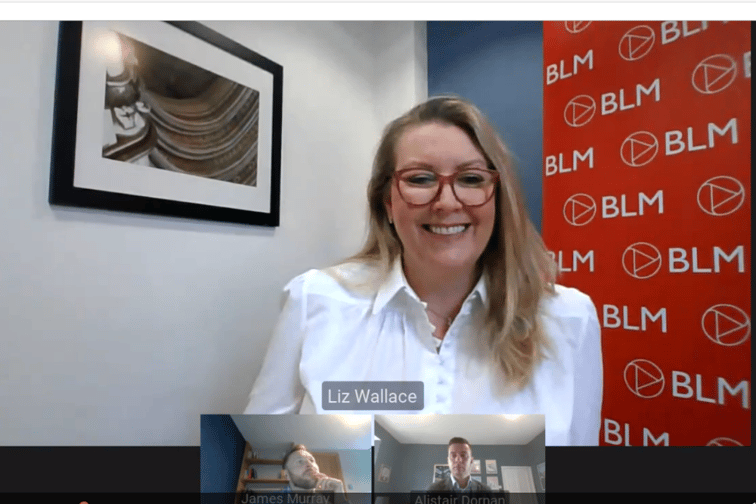

Recent thought leadership pieces from the likes of Davies and Liberty Specialty Markets have revealed the changing understanding of the role that claims service plays within the insurance ecosystem. During the COVID crisis, claims teams have proven themselves the point of contact between the “promise” of insurance and its actual offering, and represented a consistent concern for insurers and business owners alike as the coronavirus became a viable risk.
Gallagher’s series of ‘Talking Risk’ webinars have been dedicated to exploring the concerns sweeping the insurance sector and its latest explored the subject of what COVID-claims could mean for businesses. Host James Murray, a branch director at Gallagher UK, noted how challenging COVID has been for businesses and that, while nobody is quite out of the woods yet, there is cautious optimism about the future.
“But as businesses navigate this next phase of the pandemic,” he said, “an area of concern is the potential for COVID claims. You may have read in the Press that some industry commentators are predicting a wave, or a tsunami, of COVID claims and it is true that we’re seeing activity from claims management firms seeking to generate interest from potential claimants. What are the facts? What’s the reality? Are we facing a perfect storm of conditions and will a deluge of COVID claims be the next big dilemma for businesses?”
Exploring how businesses can better understand how COVID claims can arise and the challenges that claimants must overcome to bring their claim to fruition, Murray enlisted the advice of Elizabeth Wallace (pictured above), partner at BLM Law, to examine direct COVID claims. Wallace emphasised that the discussion focuses on employees and customers who say they have contracted the virus at an organisation’s premises.
“So, it’s worth going back to basics,” she said. “And in the first instance, to bring a successful civil claim for compensation for injury, there has to be an actionable injury. And we know that, thankfully, the vast majority of people who suffer COVID have either no symptoms at all or have recovered fully and after a very short period of time. In my view, a viral infection of that nature would not constitute a compensatable injury… and is similar to bringing a claim after catching a cold or flu from somebody at work.”
However, she stated, if someone’s earnings are impacted by long COVID or serious post-COVID disability, or someone has died as a result of COVID, leaving dependents, then the financial incentive to bring a claim will become much greater. Understandably a claimant, or their family, will feel much more aggrieved if their disability or fatality is perceived to be preventable. These claims are likely to be of high value - but the claimant must still establish not just a breach of duty, but also a causative link i.e. that they contracted COVID at work.
Murray noted that looking at who can bring such claims, the remit seems to include customers, employees and people who have been on the premises of the business in question. The question, he said, is whether an employee who has somebody in their home who has contracted COVID, and had negative side effects, can bring a claim forward. For Wallace that’s a link too far. There has to be a causative link, she said, and while it could be deemed similar to asbestos cases where somebody brings asbestos from work into their home, she believes the causative link between work and being obligated to a duty of care towards the impacted person is too great, and that such cases are restricted to people in the workplace.
She highlighted that, beyond having a compensatable injury and being able to prove that a specific premise was the place that the virus was contracted, there are several other challenges that a claimant must overcome in order to enact a claim.
“First of all,” she said, “they need to definitely have COVID - so there needs to be a positive test and those weren’t as vastly available as they are now, if we’re talking historically. They’ll need to show that the breach of duty by the employer or the organisation actually caused them to contract that. So, all businesses [need to] be adapted to operate in our COVID world and have that COVID-secure plan.”
Wallace’s key message to businesses looking to mitigate this risk is simple – they need to keep following government guidelines, both for national businesses and geographically spread businesses that were previously operating in different tiers. This means keeping abreast of local rules in relation to behaviour and PPE. Taking masks, for example, she said, it’s important to remember that if somebody is alleging that they contracted COVID because you didn’t enforce wearing masks, that they weren’t mandatory, or even recommended outside the clinical setting, until many months into the pandemic.
“And face coverings were only required on public transport in England from June 15 last year,” she said. “So, in practical terms for businesses, [the answer] is having a COVID secure plan to control the risk, which is a legal requirement, documenting it, ensuring it’s adhered to and reviewing it very frequently.”
